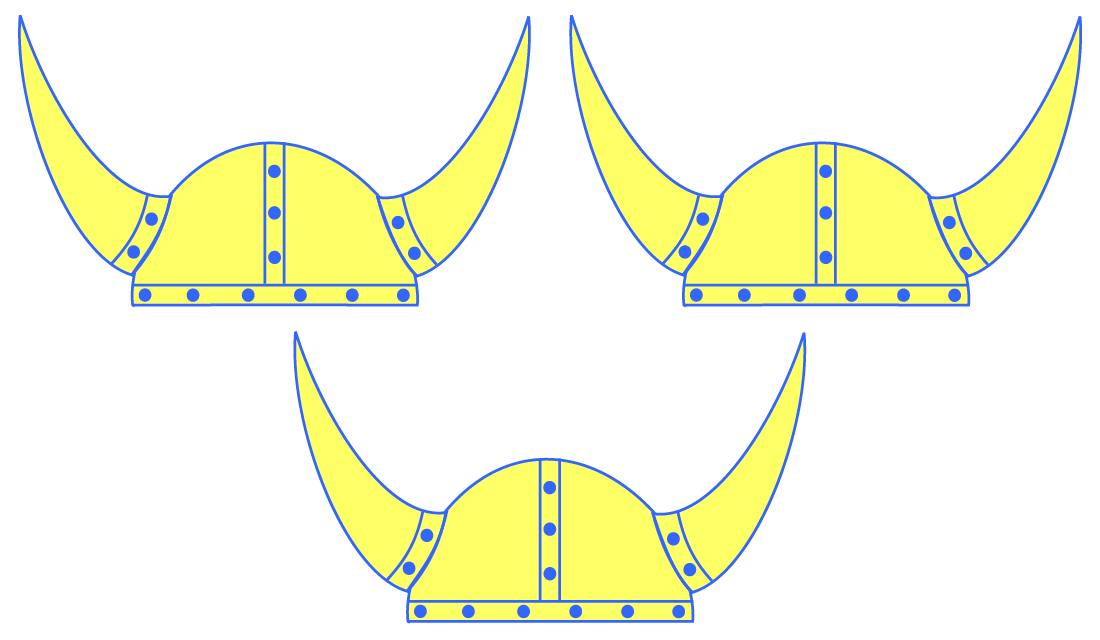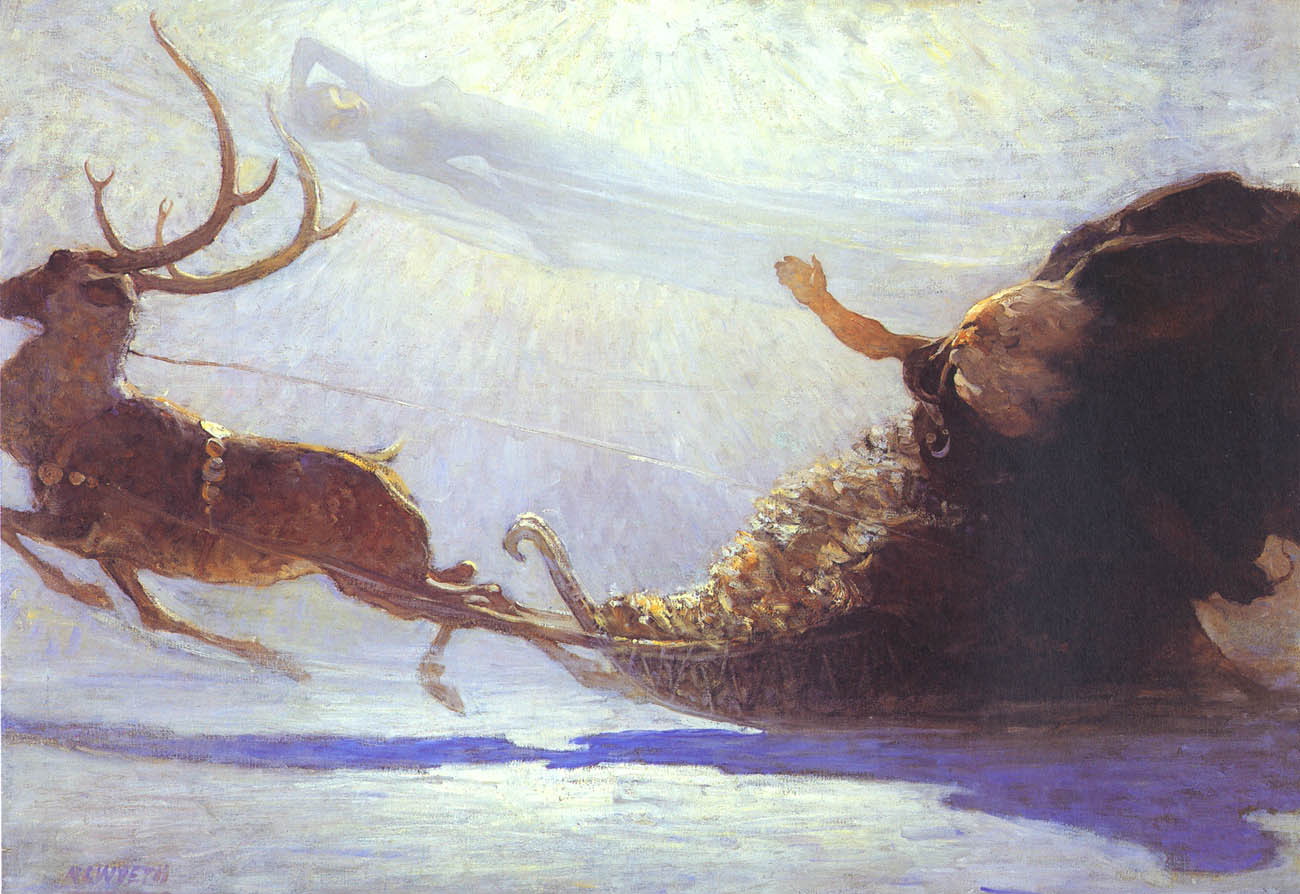
THE MAGICIAN AND THE MAID OF BEAUTY
“High in the sky he saw a rainbow, and on it the Maid of Beauty.” (Wainamoinen returns home on a sledge from his exile in the icy wastes of Pohyola and attempts—extremely unsuccessfully—to flirt with the most attractive woman alive in the sky.)
Normally this dreadful, little blog focuses only on the Scandia part of Fennoscandia, but since Yule is in the air (or at least the 21st century commercialized version of it is on the shopping aisles, airwaves, etc.), it seems appropriate to deviate from that rigid stance and benignly embrace the Fenno side. Which of course can only mean: The Kalevala, Finnish metal, and/or Finnish metal based upon The Kalevala. In this particular instance, it’s specifically about the Kalevelian paintings done by N.C. Wyeth in 1912 for James Baldwin’s The Sampo: Hero Adventures from the Finnish Kalevala, which is no longer in print under the original name but has been re-released by those mighty re-printers of archaic, copy-right-expired texts, Dover Publications.
Adding to the fun trivia side of things, the venerable N.C. Wyeth was also a genuine Masshole (from Needham) who not only illustrated The Kalevala, but also illustrated other great stories such as Robin Hood, King Arthur, Treasure Island, and The Last of the Mohicans, all of which are much, much better known than The Kalevala outside of Finland. And, to use the sort of parlance favored by medieval Icelandic scribes (which isn’t what this post is about, but still), N.C. also sired Andrew Wyeth in a fruitful union between the houses of Wyeth and Bockius, and thus produced a male heir to inherit his artist’s crown, which has since passed on to Andrew’s son, Jamie. Much of the art of the Wyeth lineage is on display and online at The Brandywine River Museum of Art, but N.C.’s less-Santa-like Kalevelian works are also depicted below; the phrases in quotes are words from Baldwin’s text, and I’ve provided my own clarifications in parenthetical yellow to help put it all in context.
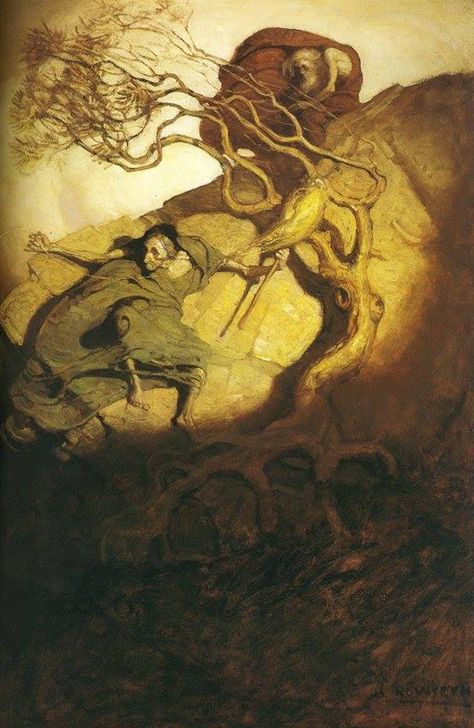
THE HAG OF THE ROCK
“An old, old woman, gray-eyed, hook-nosed, wrinkled, was sitting on the rock and busily spinning.”
(To prevent Wainamoinen from leaving the land of the dead, the evil hag relies on the age-old trick of failed hero-capturing: spinning an insane amount of thread that her cohort, an evil wizard, weaves together into a massive and ultimately ineffective fishing net.)
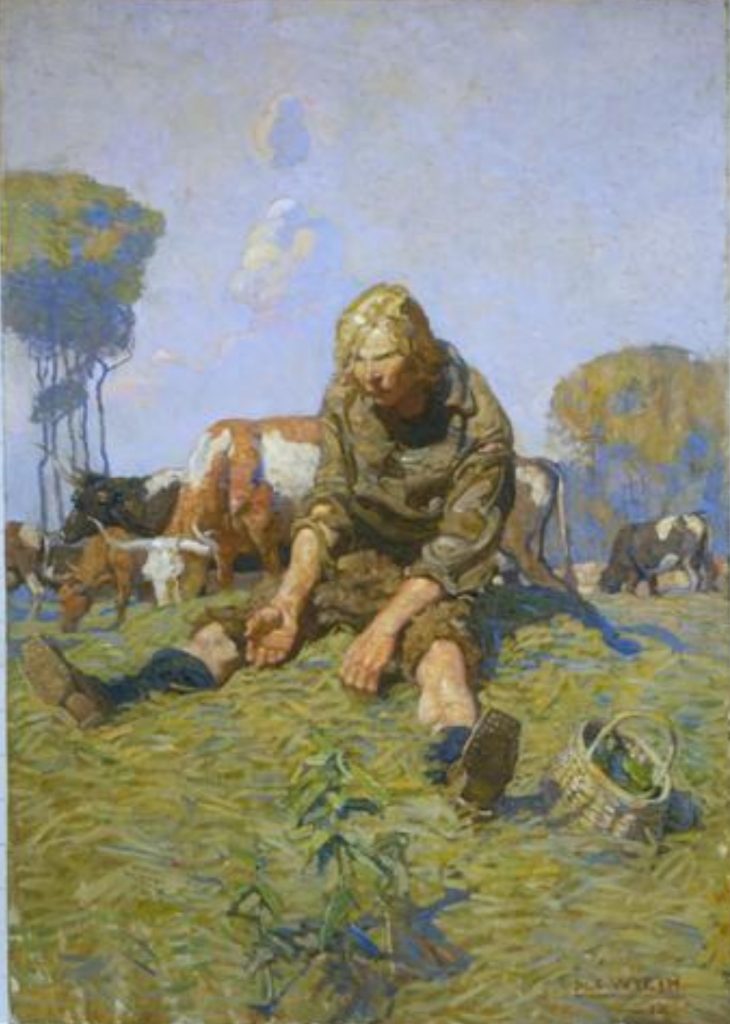
THE SLAVE BOY
“Then, at length, when all were peacefully feeding, he sat down upon a grassy hummock and looked around him, sad, lonely, vindictive.”
(Ilmarinen’s slave is pissed that the kitchen-wench put a rock in his bread.)
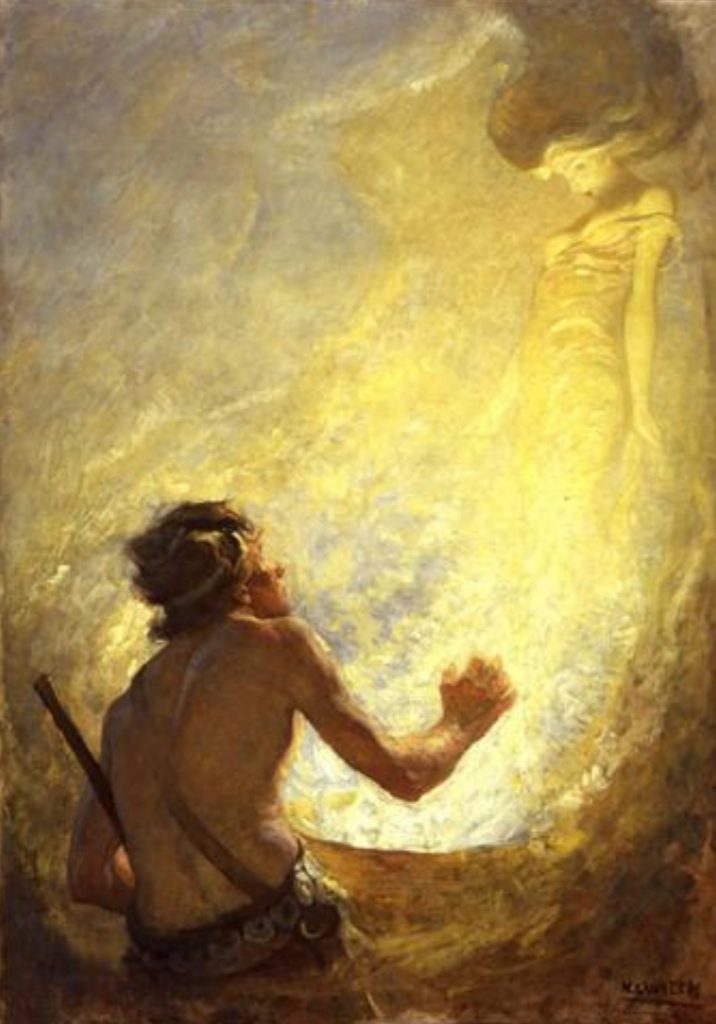
THE GOLDEN MAIDEN
“The flames died suddenly away, and out of the vessel there sprang a wonderful image—the image of a beautiful maiden.”
(Ilmarinen gets lonely after his entire household is mercilessly slaughtered, so he uses his unworldly blacksmith skills to create what is essentially an ancient blow-up doll, except that it’s made entirely out of gold and silver.)
And last, but not least, what would a post about Kalevelian art be without an appropriate Finnish metal soundtrack to accompany it? Because nothing screams seasonal festivity and Yuletide tradition like blasting Amorphis’ epic Kalevala concept album, Tales from the Thousand Lakes:
Subscribe to get updates from Scandinavian Aggression!
You know, if you feel like it or whatever. Your email is only used to send updates when new nonsense has been posted to the site. It's stored in the secure abyss of WordPress and not shared anywhere or anyhow else. Skål som fan!
